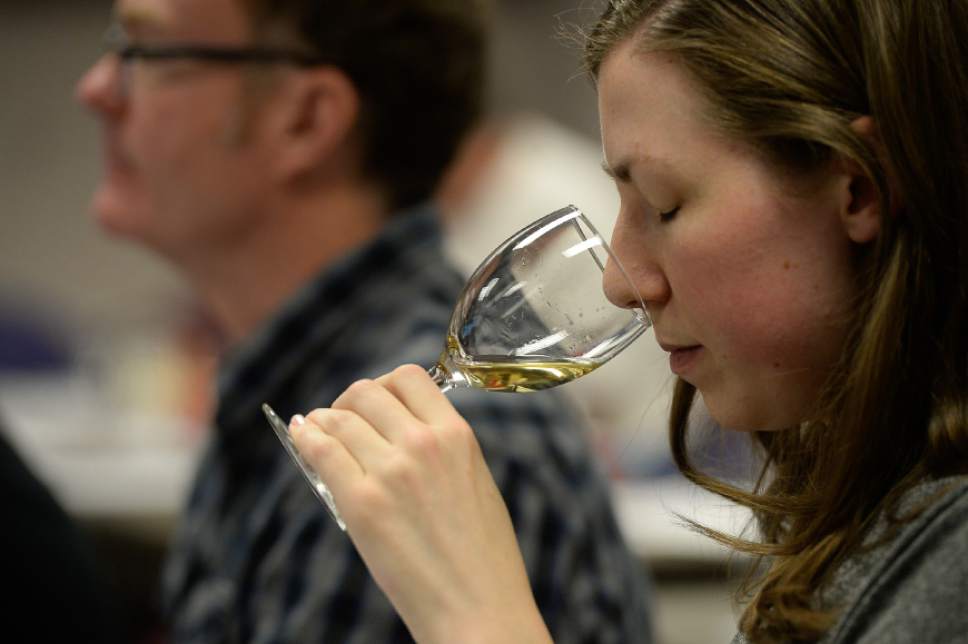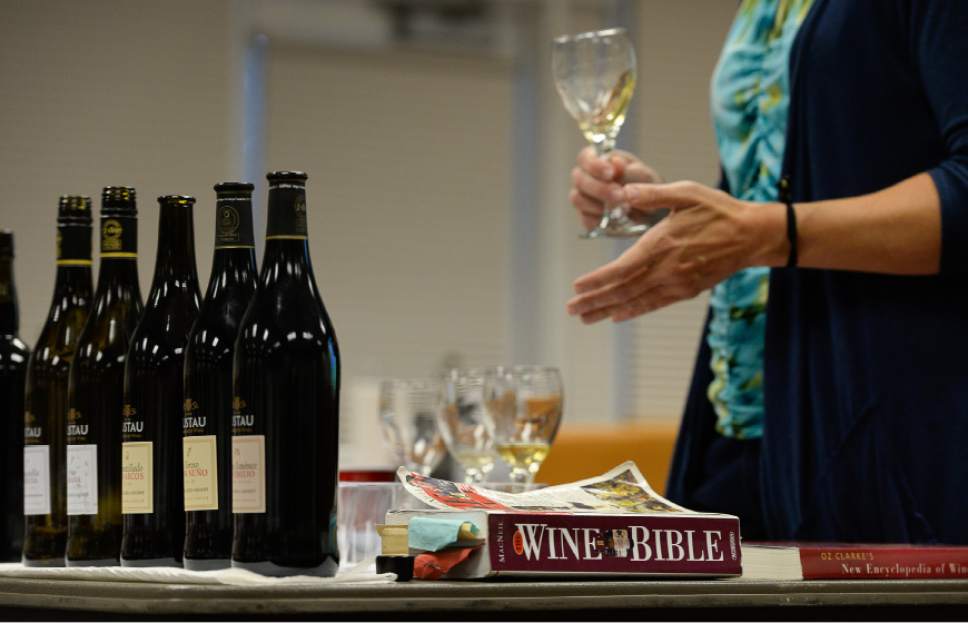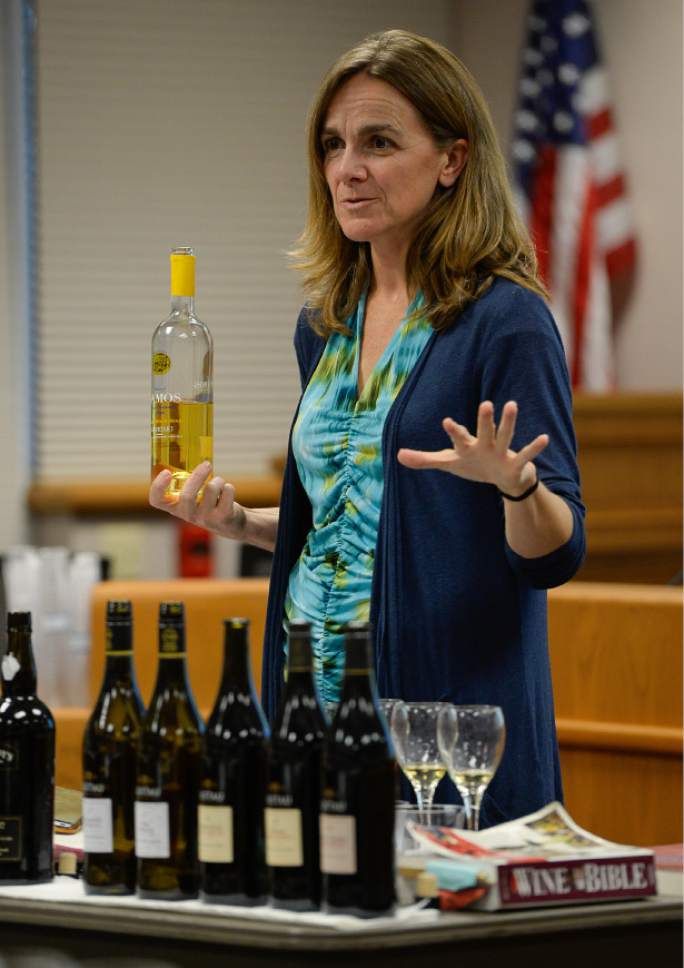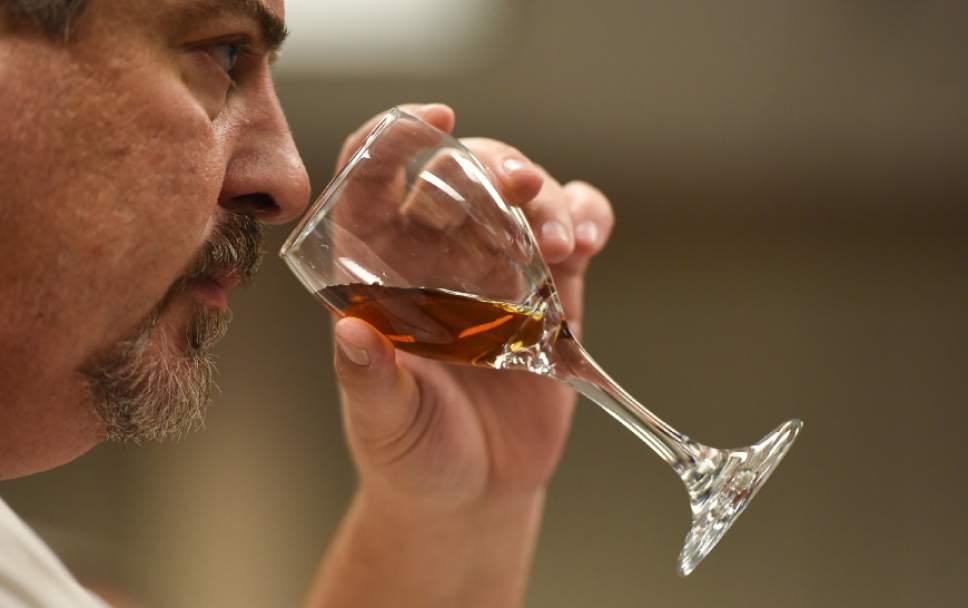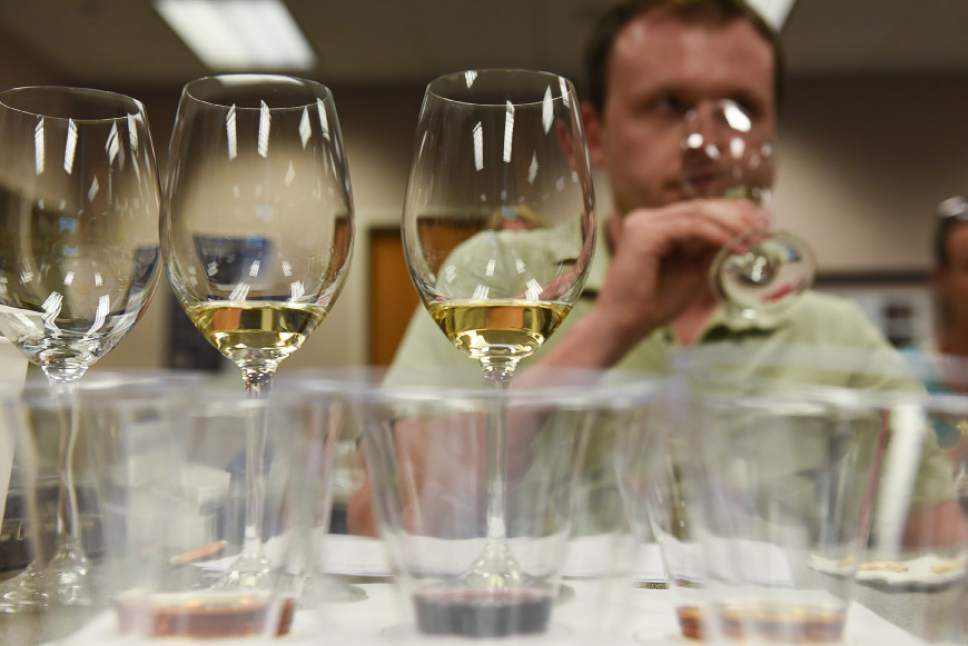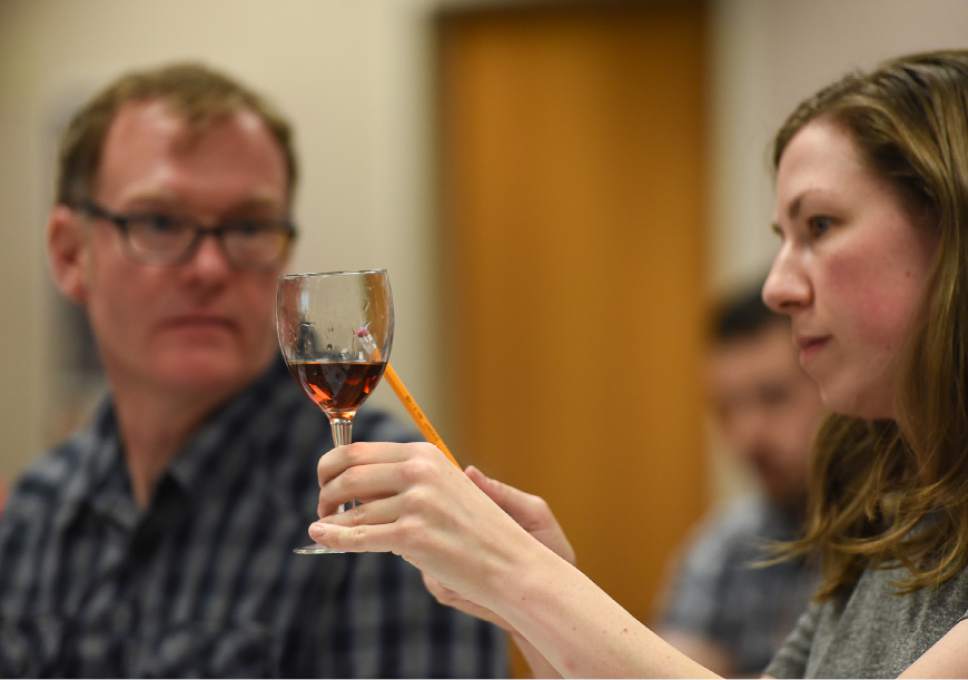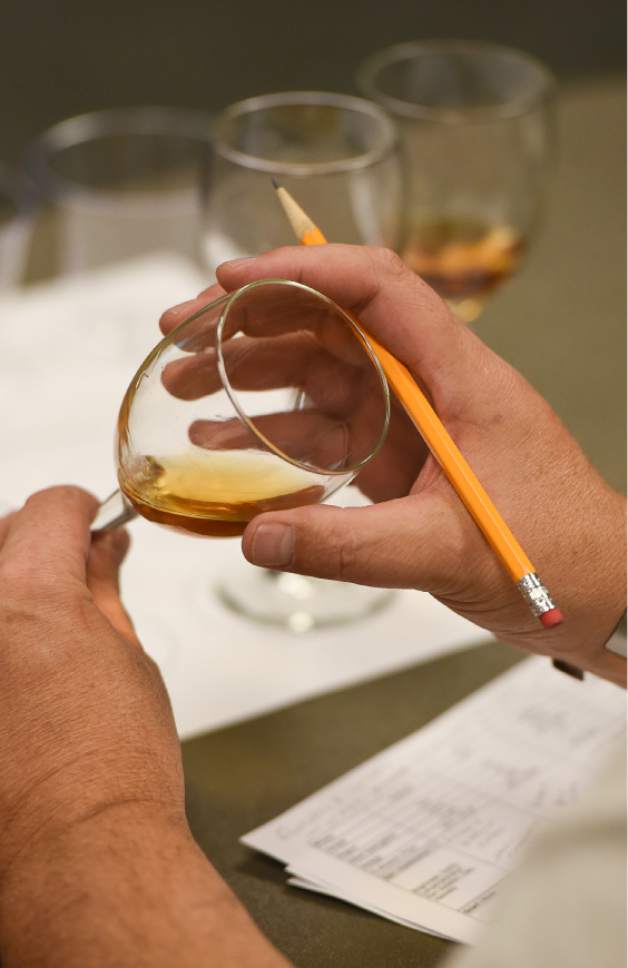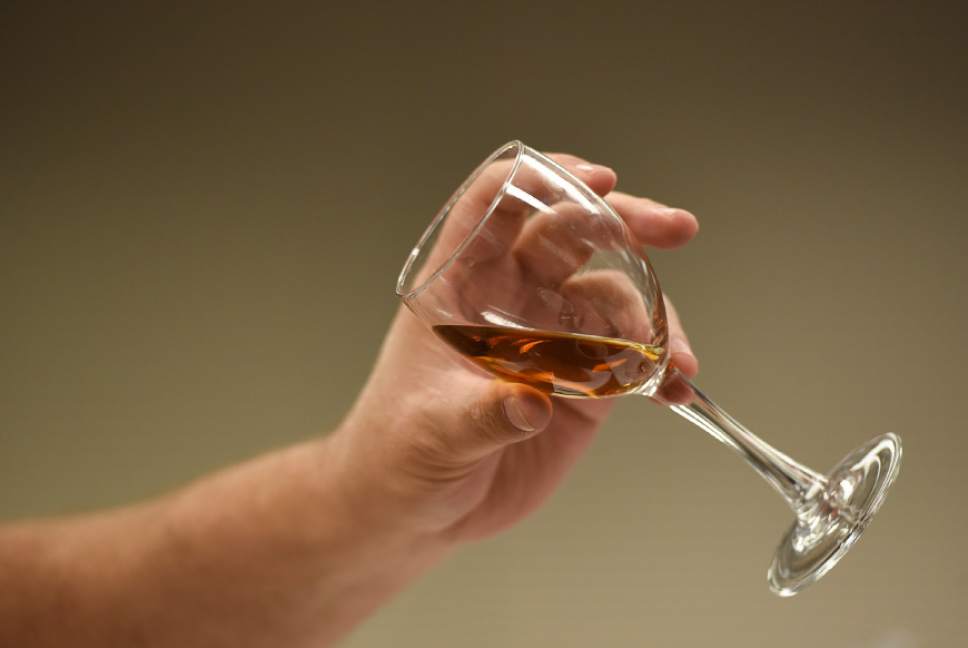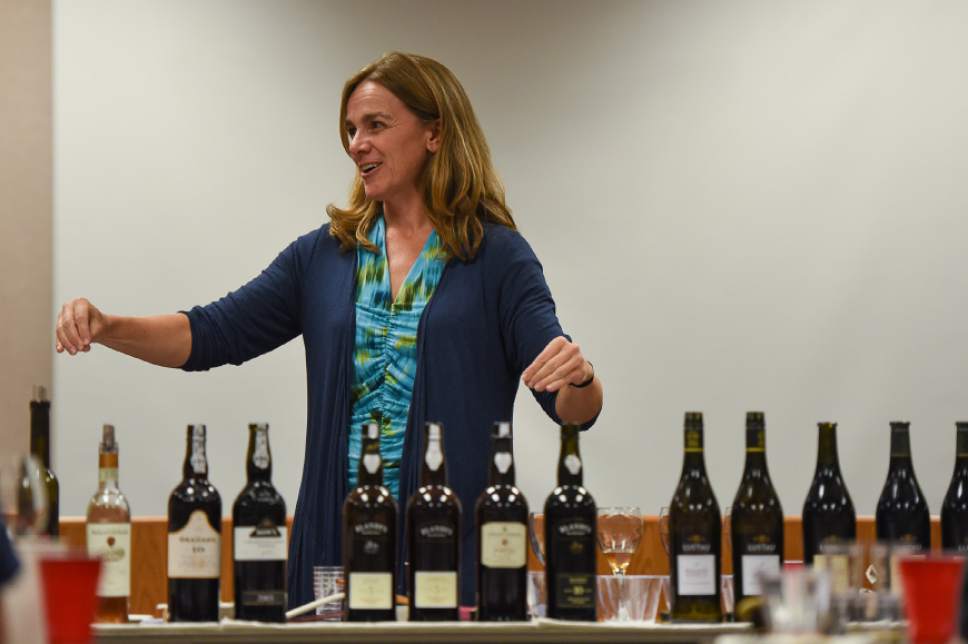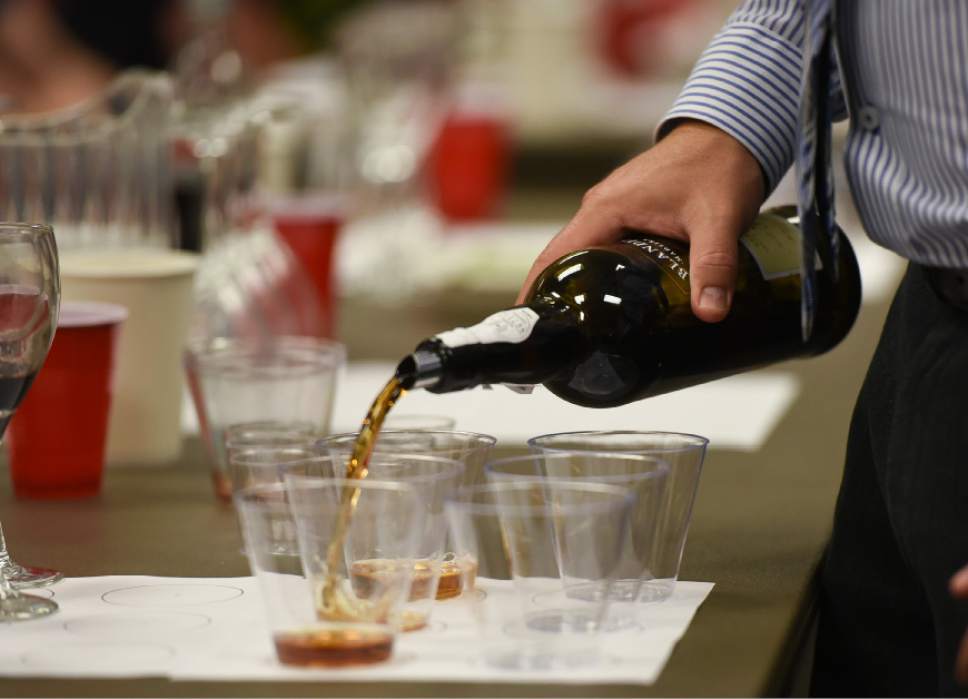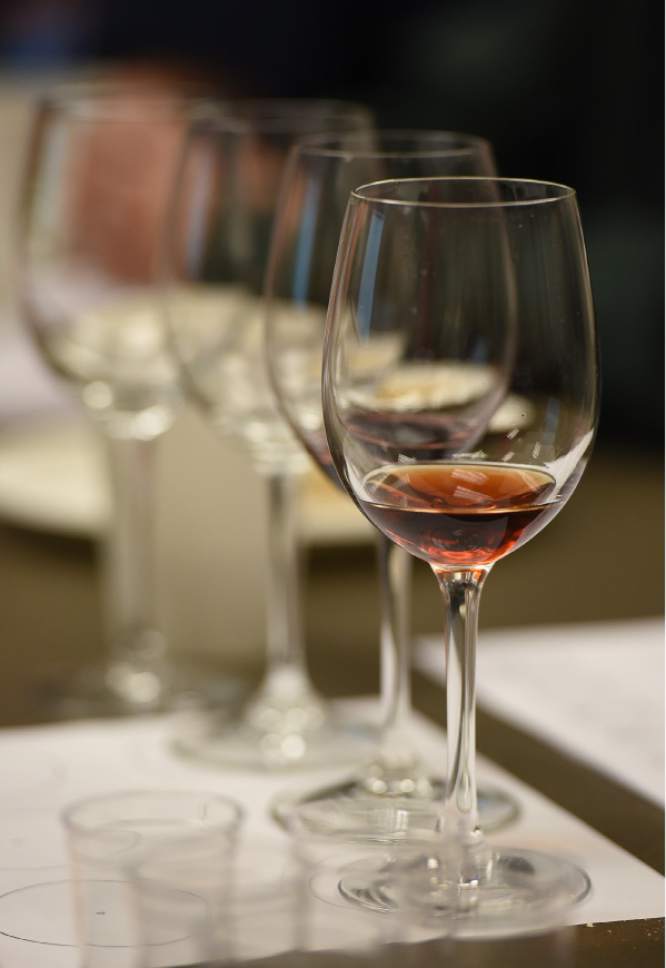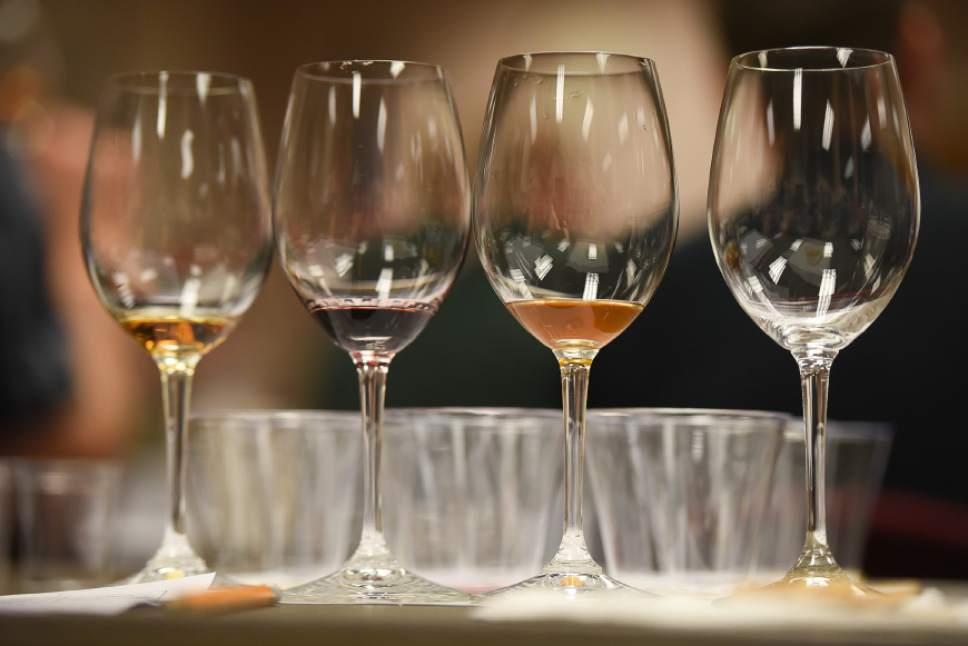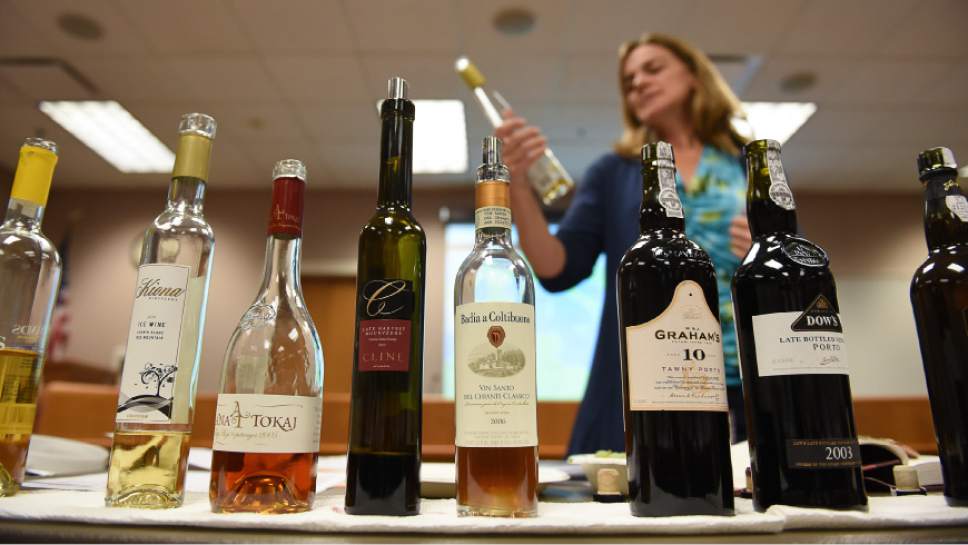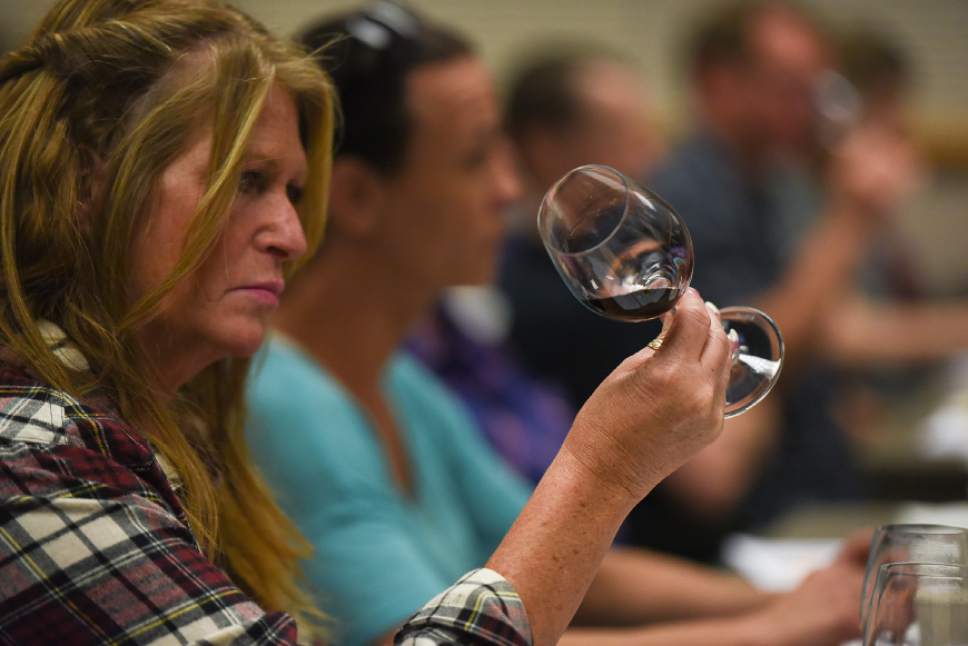This is an archived article that was published on sltrib.com in 2016, and information in the article may be outdated. It is provided only for personal research purposes and may not be reprinted.
Patrick Richardson has worked on and off in one of Utah's state-owned liquor stores for nearly two decades.
But it's only been in the past month that the Utah Department of Alcoholic Beverage Control has provided Richardson and fellow employees training that makes them more knowledgeable about what's inside the bottles on the racks.
Richardson is one of 18 store managers and assistant managers selected to participate in a new 12-hour program to learn about — and sample — various wines. During the tastings, students sip, swish and spit the wine into a cup and then discuss the characteristics with a certified wine educator and their colleagues.
The format differs from past DABC classes, which were taught by industry representatives and covered only new liquor products coming into the state.
"You can talk about a wine and probably sell bottles, but it's different to actually smell and taste the product," said Richardson, the assistant manager at the Metro Wine Store in Salt Lake City. "I've been wanting this [training] for a long time."
Classes are held one night a week, for eight weeks, at the DABC main offices. Employees get their regular pay and are reimbursed for travel time, said Andrew Hofeling, a human resource trainer with the DABC.
Hofeling said a budget increase for the 2016-2017 fiscal year allowed the department to hire Wendy Caron, a certified wine educator, to teach the classes. Once the first session is complete in October, another will be offered to a new group of employees in March.
"If you go to any retail store, customers expect employees to have knowledge about what they are selling," Hofeling said. "Bottom line is it will give our customers a better experience."
Utahns have been requesting better service at the liquor stores for many years. Most don't fault the employees, but point to underfunding from the Legislature.
While liquor generates about $400 million in annual sales in Utah, the DABC has an operating budget of $46.6 million, and that is up about $3 million from the previous year. The majority of liquor profits go back into the state's general fund, with a portion helping to pay for school lunch and public safety programs.
The DABC has heard the complaints, said DABC spokesman Terry Wood.
"We're stepping up our game and want to be a good retail operation," Wood said. "We want to improve the entire experience for customers, and the more knowledgeable employees are, the better."
Wood said the class was limited to 18 to create a better learning experience for the students. The DABC also decided for its initial courses to train employees from stores "that had high-volume wine sales, where this kind of knowledge is needed."
He said the class costs about $600 per student or $20,000 for the two sessions.
State auditors believe the DABC needs to do more. "DABC should continue to develop more robust training and offer training to more employees," an audit, released earlier this week, recommended.
Caron, who has worked in the Utah restaurant industry for more than 20 years, believes the class is needed and will help customers. "This training will help employees provide suggestions and have knowledge of the products they are selling."
Jessica Mitchell, an employee at the Metro Wine store for about eight months, jumped at the chance to take the class. "It's definitely an opportunity that I wanted to take advantage of," she said. "I love learning everything about wine, and I can't afford to try the wines on my own."
It's an "overwhelming" topic, she added, so it's helpful to sample similar wines side by side and discuss them as a group.
Casey Randall, who works in the Park City wine store, believes the training will help him be more confident on the job. "When a customer needs a recommendation, I won't look like a deer in the headlights."


